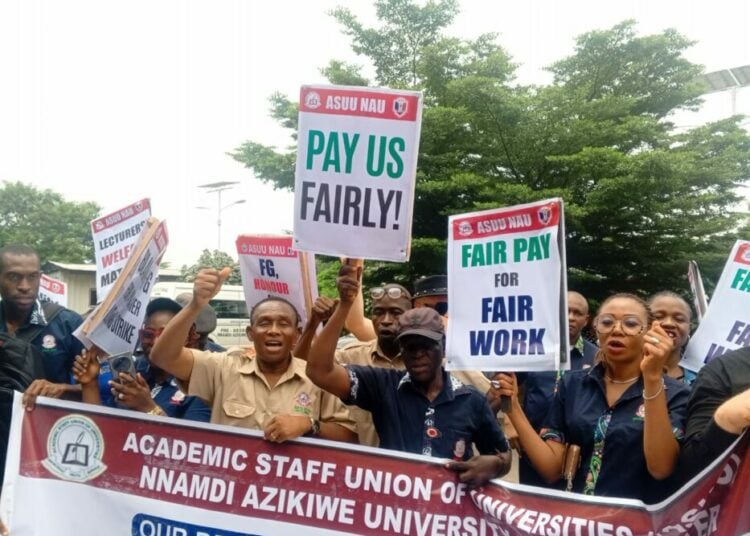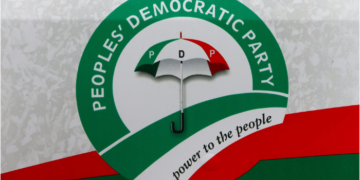For many Nigerian undergraduates, the dream of graduating on time is fast becoming a mirage. Frequent strikes by the Academic Staff Union of Universities (ASUU) have turned what should be a four-year degree into a marathon of uncertainty and frustration.
In the last two decades, the conflict between ASUU and the Federal Government has become a defining feature of Nigeria’s higher education system.
Each new administration inherits not only the promises of reform but also the baggage of unpaid allowances, unfulfilled agreements, and underfunded institutions.
According to data compiled from various academic unions, Nigerian public universities have been shut for over 1,500 days cumulatively since 1999, roughly four academic years lost to industrial actions.
Every strike follows a familiar pattern, the union declares an indefinite action, the government calls for dialogue, and students return home to wait. The cycle repeats itself endlessly, leaving behind disrupted calendars, disillusioned youth, and a weakened education system.
The human cost of these disruptions is enormous. Students’ mental health often suffers as they grapple with frustration, boredom, and hopelessness. Many take up side hustles or menial jobs to stay busy, while others abandon school altogether.
For final-year students, the delays are particularly heartbreaking. Some lose job or scholarship opportunities due to prolonged academic calendars, while employers grow increasingly sceptical of graduates from public universities whose timelines are unpredictable.
The economic implications stretch beyond the campus gates. Parents who had budgeted for tuition find themselves sustaining idle children at home for months.
Small businesses around universities food vendors, printers, transporters, and hostel operators, bear the brunt of closures. In the long term, the nation itself suffers.
Prolonged disruptions reduce research output, slow innovation, and weaken the quality of graduates entering the job market. Brain drain intensifies as academics seek better working conditions abroad.
At the core of ASUU’s grievances are issues of funding, welfare, and institutional autonomy. The union argues that without proper investment in infrastructure, research, and staff development, Nigerian universities will continue to decay.
The Federal Government, however, insists that while the demands are valid, the country’s limited resources cannot meet all of them at once. The introduction of the Integrated Personnel Payroll Information System (IPPIS) worsened tensions, as ASUU viewed it as a violation of university autonomy. Despite numerous memoranda of understanding and promises of reform, implementation remains weak fuelling distrust and recurring stand-offs.
Stakeholders and students warned that the current pattern could produce a lost generation of students undertrained, unmotivated, and out of sync with global academic standards.
Speaking to LEADERSHIP, a parent, Mrs Veronica Terseer, whose daughter recently gained admission to Benue State University, Makurdi, called for lasting reforms that address the roots of the problem.
She said proposals such as granting universities more autonomy, diversifying funding sources, and enforcing accountability in both government and union operations may help.
She said a permanent dispute resolution mechanism, one that allows negotiations without halting learning is crucial.
“Every strike widens the gap between Nigerian universities and their global counterparts. My daughter has just gained admission and is in her first semester, and the next thing she is welcomed with a strike.
“The pain of parents struggling to pay rent during a strike, only for it to expire and have to be renewed again, is another serious concern.
“Education should never be used as a bargaining chip,” Prof. Adedayo stresses. “There must be a way to protest without paralysing the system,” she added.
A 300 level student at Yakubu Gowon University, Abuja, Aondo Victor, who is experiencing the strike for the first time said, “Each time the strike starts, you feel your brain freezing. You struggle to regain motivation when it’s called off because you know it could happen again.”
For students like Ruth Eze, a 24-year-old Economics undergraduate at Yakubu Gowon University, the weight of lost time is heavy.
What was meant to be a four-year journey will now stretch beyond that. “I still want to graduate, no matter how long it takes. But sometimes, I wonder if this system is designed to break us,” she said.
LEADERSHIP reports that the ongoing warning strike, now in its fourth day, has yet to produce any tangible results. The Federal Government has already enforced the “no work, no pay” policy, while ASUU, on its part, has vowed not to be intimidated by it.
As it stands, the fate of the students remains hanging in the balance, and the possibility of an indefinite strike looms large at the expiration of the two-week warning strike.
“””””‘





